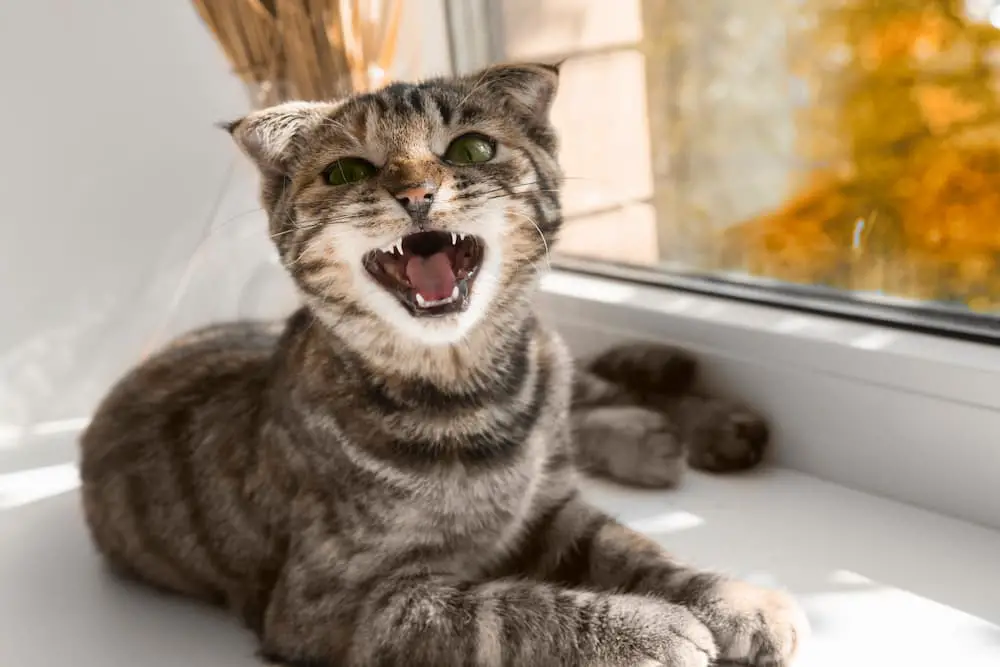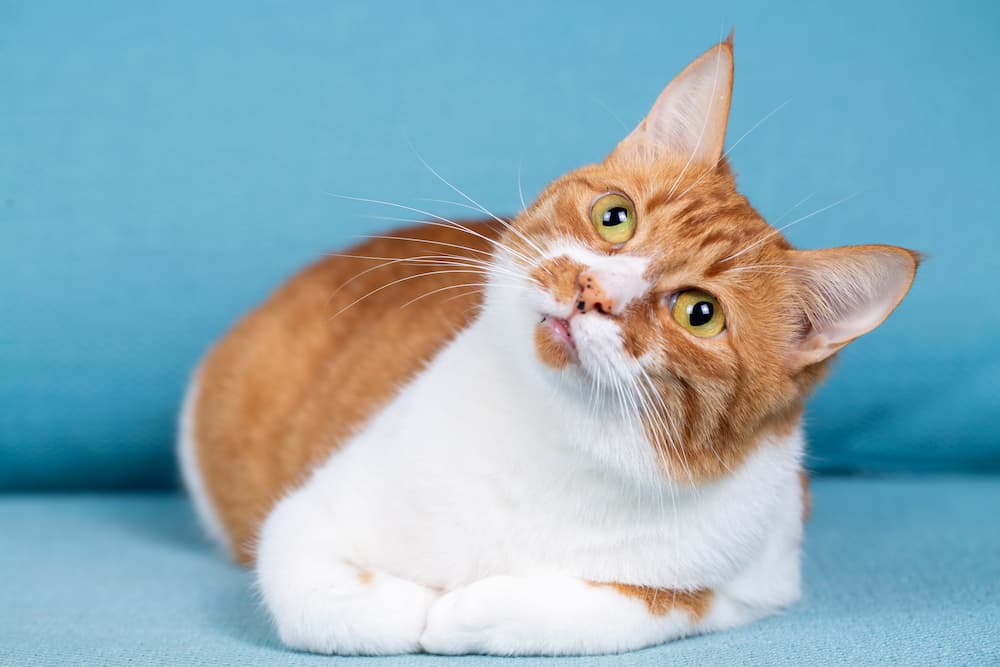If you share your heart and home with cats with arthritis, you know the heartbreak of watching them hurt, but not being able to provide much relief. Finally, there’s help!
The U.S. Food & Drug Administration (FDA) has approved a drug aimed at managing pain and treating osteoarthritis in cats. It’s also the first approved monoclonal antibody drug approved by the FDA for use in any animal species.

Your cats with arthritis could be leaping from bookshelves and taunting you from atop the fridge again very soon!
On January 13, the U.S. Food and Drug Administration approved Solensia (frunevetmab injection), the first treatment to control the pain associated with osteoarthritis in cats and the first monoclonal antibody (mAb) new animal drug approved for use in any animal species.
Frunevetmab, the active ingredient in Solensia, is a cat-specific monoclonal antibody (a type of protein) designed to recognize and attach to a protein called nerve growth factor (NGF) that is involved in the regulation of pain. When frunevetmab binds to nerve growth factor, it prevents the pain signal from reaching the brain.
“Treatment options for cats with osteoarthritis are very limited. Advancements in modern veterinary medicine have been instrumental in extending the lives of many animals, including cats. But with longer lives come chronic diseases, such as osteoarthritis,” said Steven M. Solomon, M.P.H., D.V.M., director of the FDA’s Center for Veterinary Medicine. “Today’s approval marks the first treatment option to help provide relief to cats that are suffering from this condition and may significantly improve their quality of life. We also hope that today’s approval of the first monoclonal antibody by the FDA for any animal species will expand research and development of other monoclonal antibody products to treat animal diseases.”
Osteoarthritis is a degenerative condition of the joints in which the normal cartilage cushion in the joints breaks down. Eventually, the bones in the joint rub against each other, causing pain, decreased joint movement, and sometimes the formation of bone spurs or other changes in and around the joint. Osteoarthritis continues to get worse over time; however, Solensia can help manage the pain associated with the condition to improve the cat’s quality of life.
Solensia is available only by prescription from a licensed veterinarian because professional expertise is required to properly diagnose pain associated with osteoarthritis in cats, administer the injection and monitor the safe use of the product, including treatment of any adverse reactions. Solensia is given through subcutaneous (under the skin) injection once a month and is dosed based on the weight of the animal.
Because of the difficulty in assessing chronic pain levels in cats, the FDA looked at whether the overall evidence supported the conclusion that Solensia was effective in controlling pain associated with osteoarthritis in cats. The effectiveness of Solensia was evaluated in two effectiveness studies using three clinical assessments that measured different aspects of pain associated with osteoarthritis in cats.
The two clinical trials were both masked, randomized, controlled field studies involving client-owned cats with clinical signs of osteoarthritis. The cats’ veterinarians assessed the cats based on orthopedic examinations before and after treatment. The owners of the cats provided baseline scores of their cats’ levels of impairment doing certain activities (such as jumping onto furniture, using the litter box or grooming), compared to the cats’ level of ability before they developed osteoarthritis. The owners then assessed their cats’ response after receiving treatment. Overall, the cats in the treatment group had better assessment scores than those in the control group.
The most common side effects seen in cats with arthritis treated with Solensia included vomiting, diarrhea, injection site pain, scabbing on the head and neck, dermatitis and pruritus (itchy skin). These effects were relatively mild and did not require cessation of treatment.
Veterinarians should advise owners about the possible adverse events and side effects before using the drug. The FDA encourages cat owners to work with their veterinary team to report any adverse events or side effects potentially related to the use of any drug, including Solensia.
The FDA granted approval of Solensia to Zoetis Inc.







